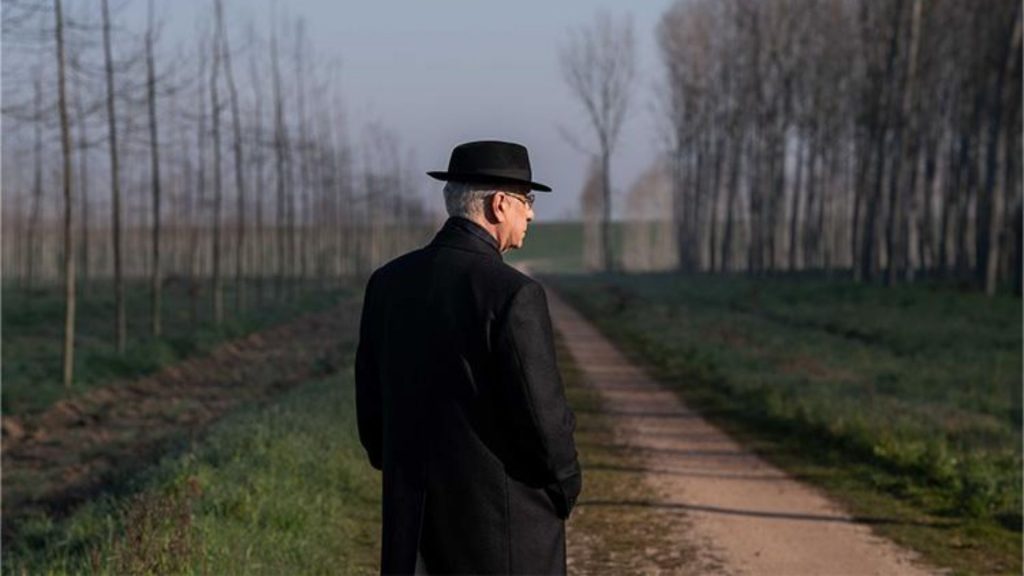‘La Grazia’ Review: Paolo Sorrentino’s Best Movie in Years?
Paolo Sorrentino’s movies, like The Great Beauty and The Hand of God, have always been explosions of color, movement, and emotional chaos. Rooted in a flamboyant, baroque style, his films can be mesmerizing but also messy and over-the-top. This has often led me to a mixed opinion of his work. While critics have often adored him, I personally found his recent movie Parthenope to be a disaster of loose ends.
However, with La Grazia, which opened the Venice Film Festival, Sorrentino delivers a surprising and meticulously crafted film. This is a director who has sometimes felt like a modern, made-for-TV version of Fellini, but here he pulls himself together in a remarkable and focused way.

A Quiet Man in a Loud World
The movie’s main character is the fictional Italian president, Mariano De Santis, played by the masterful Toni Servillo. Known for his roles in The Great Beauty and Il Divo, Servillo gives a performance of “meticulous and weirdly domineering passivity.”
The film opens with a long quote from the Italian constitution detailing the president’s significant powers. This makes us wonder if we’re in for a story of autocratic excess, especially given Italy’s history with powerful leaders like Mussolini and Berlusconi. However, Servillo’s character is the exact opposite. He is a widower and a devoted Catholic who sees himself as a ceremonial figure. To say he has a poker face would be an understatement; his performance is a masterclass in minimalism. At 66, Servillo looks closer to 75, with a grim, patrician face that is almost frozen in its rectitude. It’s the face of an aging banker or a priest whose faith is beginning to waver. This formidable face is the focal point of a movie that is as stoic and precise as its hero.
De Santis is finishing the final six months of his term and seems to be operating on autopilot. His wife, Aurora, died eight years ago, and he still misses her every day, a sign that he’s deeply romantic but also stuck in the past. His daughter, Dorotea (Anna Ferzetti), who is as dry as her father, organizes his daily life. She tries to keep him healthy with bland meals and attempts to force him to quit smoking, but he sneakily enjoys a cigarette whenever he can. As one character notes, De Santis’s nickname is “Reinforced Concrete,” which perfectly sums up his personality.
Making Drama Out of Concrete
So, how do you make a dramatic movie out of “reinforced concrete”? Sorrentino achieves this in a few clever ways. Servillo is such a subtle actor that the director constantly prompts us to read his mind, to find glimpses of thought and emotion behind the unyielding facade. Sorrentino also adds a few eccentric touches, like making the president a fan of Italian gangsta rap who even raps along. There’s also a subplot where he becomes obsessed with the idea that his late wife had an affair and pesters her old friend, Coco (Milvia Marigliano), for the truth.
Mostly, though, La Grazia gives De Santis, a president who only wants to be a caretaker, several complex dilemmas. He must decide on a euthanasia bill, which tears him between his compassion and his faith. (The Pope, played by Rufin Doh Zeyenouin, makes him promise not to sign it.) At the same time, he must weigh pardon petitions for two people who killed their partners. In a way, these issues are linked: Can he find a way to honor life by allowing someone to choose death, and can he forgive those who had a valid reason to murder?
A Tale of Modern Grace
The title, La Grazia, which means “grace,” ultimately serves as a parable for our autocratic era. Mariano De Santis is the opposite of an autocrat; his problem is that he rules with too light a hand and must be coerced into taking a stand. The film has a profound respect for his character’s quiet reticence. It’s nostalgic for a time when leaders didn’t use populism to fuel their ego and instead saw themselves as part of a larger whole. That is the “grace” of the title: De Santis is a man who is more devoted to his country (and his late wife) than he is to himself.
While the movie won’t set your heart racing—it is indeed staid—there is a quiet, meditative hum of inspiration throughout its story. It’s a testament to how even the most stoic figures can be driven by a deep sense of purpose and morality.
Grade: B+
Related posts:
- Top 10 best Thai movies 2018 (romantic comedy, horror, fantasy …)
- Top 9 best bl Chinese drama series that fangirls should definitely watch
- Top 5 Jackie Chan’s best movies – the greatest Jackie Chan movie list of all times
- Top 5 Best Romantic Movies On Netflix 2020 To Warm Your Icy Heart
- What Are Best Sad Romance Movies On Netflix For A Good Cry?
- The Best Creature Feature Movies List Of 21st Century So Far
- What New TV Series and TV Shows in December 2022 to Stream on VivaTV?
- Top 8 Sci-Fi Masterpieces Built Without CGI